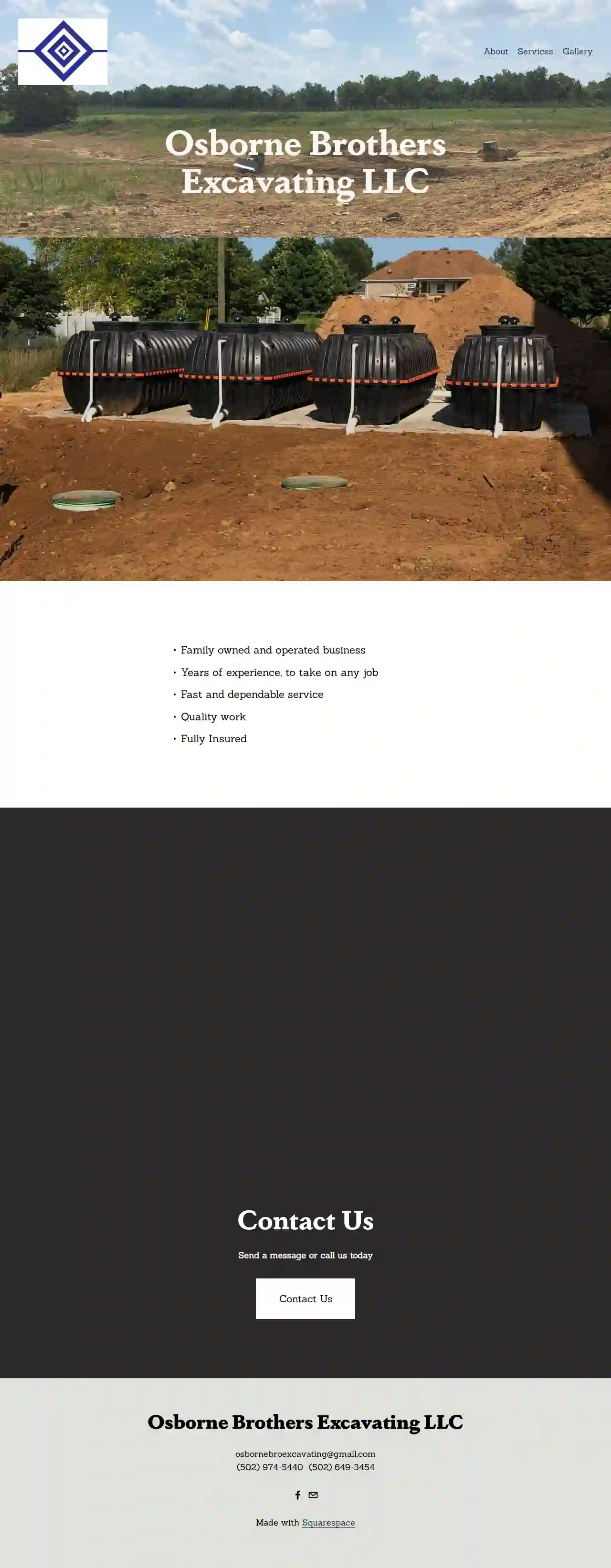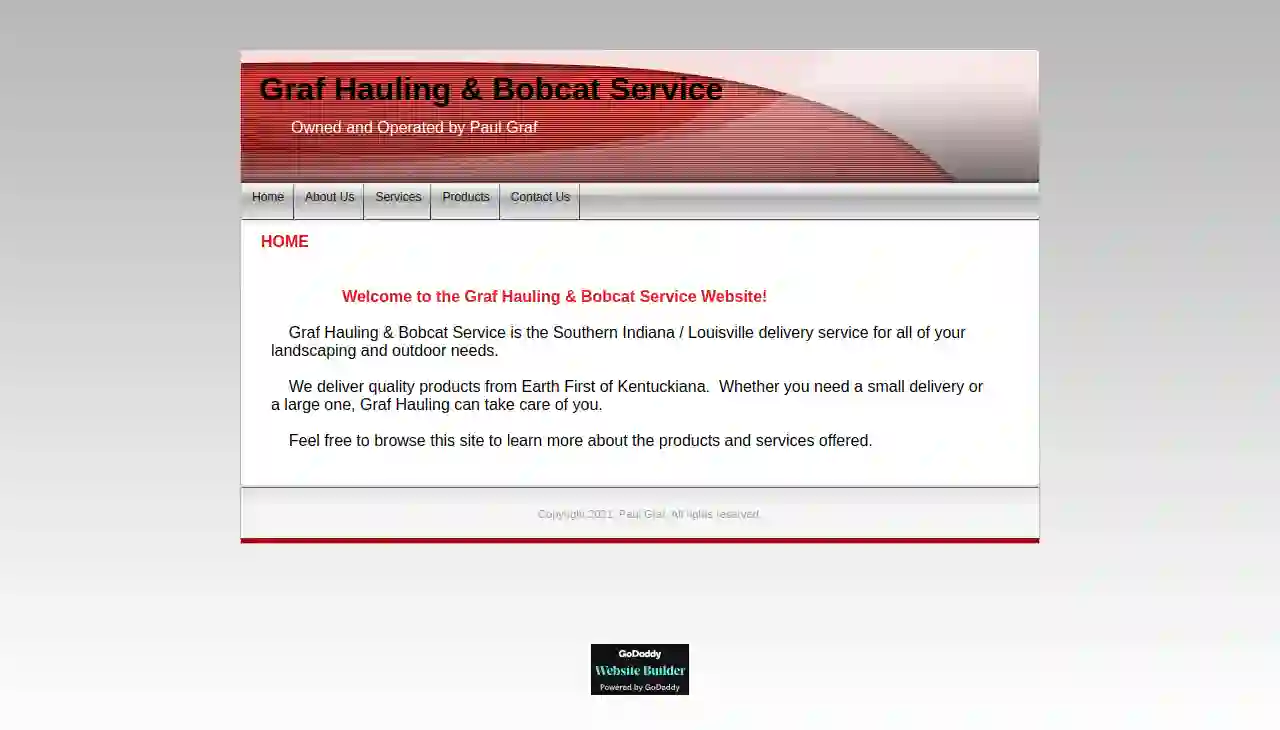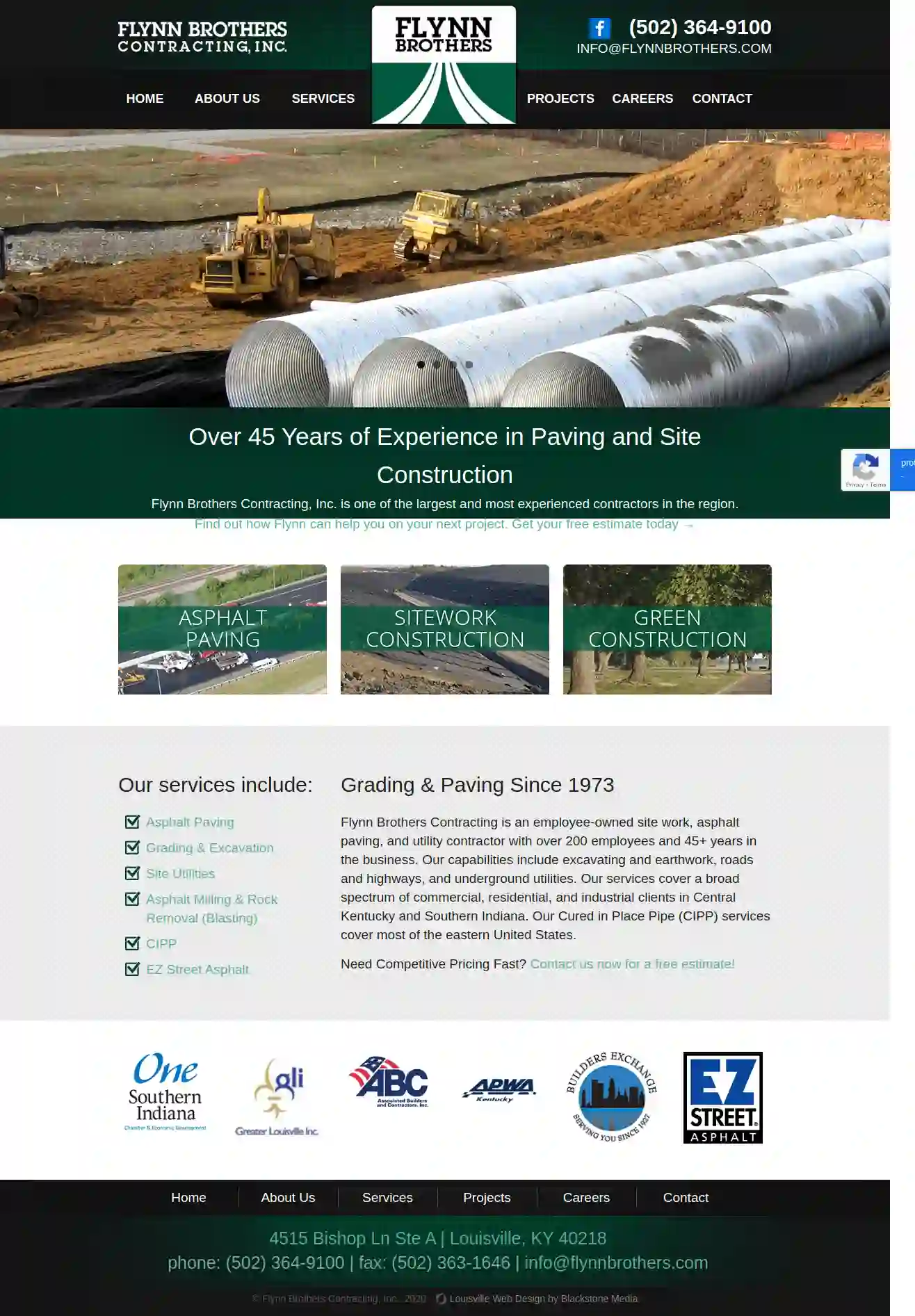Excavation Contractors Louisville
Top Land Excavation in Louisville
Get up to 3 Excavating Contractor quotes for your project today! Compare profiles, reviews, accreditations, portfolio, etc... and choose the best offer.

Garney Construction
51 reviewsLouisville, USBuilding sustainable futures with the world's most precious resources: Water and People.® Garney is a national leader in water and wastewater construction. Since 1961, we’ve focused on building water and wastewater systems of all sizes for municipal, federal, industrial, and private clients. We specialize in collaborative project delivery solutions, including CMAR and design-build, for our clients nationwide.
- Services
- Why Us?
- Gallery
Get Quote
Osborne Brothers Excavating
53 reviewsLouisville, USOsborne Brothers Excavating LLC Osborne Brothers Excavating is a family owned and operated business with years of experience, ready to tackle any job. We provide fast and dependable service, ensuring quality work and are fully insured for your peace of mind.
- Services
- Why Us?
- Gallery
Get Quote
CSA Excavating
32 reviewsLouisville, US- Services
- Why Us?
Get Quote
Graf Hauling And Bobcat Service
4.58 reviewsLouisville, US- Services
- Why Us?
Get Quote
Bryan Stumler Excavating
4.68 reviews5895 Stiller Road, Floyds Knobs, 47119, USAbout Bryan Stumler Excavating Bryan Stumler Excavating is a family-owned and operated business located in Floyds Knobs, Indiana. We have been serving the Southern Indiana area since 1989, providing high-quality excavation and construction services for both residential and commercial clients. Our team of experienced professionals is dedicated to delivering exceptional results on every project, no matter how big or small. We take pride in our commitment to customer satisfaction and strive to build lasting relationships with our clients. We believe in open communication and transparency throughout the entire project process, ensuring that our clients are informed and involved every step of the way. Whether you need a new pond dug, a driveway installed, or a complete site preparation for a new construction project, Bryan Stumler Excavating has the expertise and equipment to get the job done right. We are committed to using the latest technology and techniques to ensure that our projects are completed efficiently and to the highest standards. Contact us today to discuss your project needs and learn how Bryan Stumler Excavating can help you achieve your goals.
- Services
- Why Us?
- Gallery
Get Quote
Flynn Brothers Contracting, Inc.
325 reviews4515 Bishop Ln Ste A, Louisville, 40218, USOver 45 Years of Experience in Paving and Site Construction Flynn Brothers Contracting, Inc. is one of the largest and most experienced contractors in the region. Find out how Flynn can help you on your next project. Get your free estimate today → Grading & Paving Since 1973 Flynn Brothers Contracting is an employee-owned site work, asphalt paving, and utility contractor with over 200 employees and 45+ years in the business. Our capabilities include excavating and earthwork, roads and highways, and underground utilities. Our services cover a broad spectrum of commercial, residential, and industrial clients in Central Kentucky and Southern Indiana. Our Cured in Place Pipe (CIPP) services cover most of the eastern United States. Need Competitive Pricing Fast? Contact us now for a free estimate!
- Services
- Why Us?
- Gallery
Get Quote
Over 3,943+ Excavation Contractors on our directory
Our excavation contractors operate in Louisville & surrounding areas!
ExcavationHQ has curated and vetted Top Excavation Contractors in Louisville. Find a top & reliable contractor today.
Frequently Asked Questions About Excavation Contractors
- New Construction: Laying foundations, basements, or underground utilities for new buildings.
- Home Additions: Creating space for new rooms, basements, or extensions.
- Landscaping: Leveling ground, creating slopes, installing retaining walls, or digging for ponds or pools.
- Drainage Improvement: Installing French drains, drainage ditches, or swales to manage water runoff.
- Utility Installation or Repair: Laying new water, sewer, gas, or electrical lines, or repairing existing ones.
- Demolition: Clearing debris and preparing the site after demolishing a structure.
- Planning and Surveying: Defining the excavation area, marking utility lines, and determining the required depth and grade.
- Site Preparation: Clearing vegetation, removing obstacles, and ensuring site accessibility.
- Excavation: Using appropriate equipment (excavators, backhoes, etc.) to remove earth and create the desired excavation.
- Hauling and Disposal: Transporting excavated material to designated disposal sites, complying with environmental regulations.
- Backfilling and Compaction: Refilling the excavation with suitable material and compacting it to achieve the required density and stability.
- Grading and Finishing: Leveling and shaping the surface to the final grade for landscaping or construction.
- Determining Soil Suitability: Assessing whether the soil can support the intended structure or load.
- Recommending Foundation Types: Advising on the appropriate foundation design based on soil characteristics.
- Addressing Drainage and Erosion Issues: Providing solutions to manage water runoff and prevent erosion.
- Evaluating Slope Stability: Assessing the risk of landslides or soil movement on slopes.
- Building on challenging soil types (expansive clay, loose sand, etc.)
- Constructing large or complex structures
- Excavating near slopes or retaining walls
- Addressing drainage or erosion concerns
- Clear the Area: Remove any obstacles, including vehicles, outdoor furniture, landscaping features, or structures, from the excavation zone and surrounding area.
- Mark Existing Features: Identify and mark underground utilities, septic tanks, sprinkler systems, or other buried elements you want to protect.
- Protect Landscaping: Use tarps or fencing to shield trees, shrubs, gardens, or other landscaping elements from damage.
- Provide Access: Ensure the excavation contractor has clear access to the work area, including gates wide enough for equipment.
- Discuss Logistics: Coordinate with the contractor regarding parking arrangements, material delivery, and any special instructions or concerns you might have.
How do I know if I need excavation for my project?
What is the excavation process?
What is a soil engineer, and do I need one?
How do I prepare my property for excavation?
How do I know if I need excavation for my project?
- New Construction: Laying foundations, basements, or underground utilities for new buildings.
- Home Additions: Creating space for new rooms, basements, or extensions.
- Landscaping: Leveling ground, creating slopes, installing retaining walls, or digging for ponds or pools.
- Drainage Improvement: Installing French drains, drainage ditches, or swales to manage water runoff.
- Utility Installation or Repair: Laying new water, sewer, gas, or electrical lines, or repairing existing ones.
- Demolition: Clearing debris and preparing the site after demolishing a structure.
What is the excavation process?
- Planning and Surveying: Defining the excavation area, marking utility lines, and determining the required depth and grade.
- Site Preparation: Clearing vegetation, removing obstacles, and ensuring site accessibility.
- Excavation: Using appropriate equipment (excavators, backhoes, etc.) to remove earth and create the desired excavation.
- Hauling and Disposal: Transporting excavated material to designated disposal sites, complying with environmental regulations.
- Backfilling and Compaction: Refilling the excavation with suitable material and compacting it to achieve the required density and stability.
- Grading and Finishing: Leveling and shaping the surface to the final grade for landscaping or construction.
What is a soil engineer, and do I need one?
- Determining Soil Suitability: Assessing whether the soil can support the intended structure or load.
- Recommending Foundation Types: Advising on the appropriate foundation design based on soil characteristics.
- Addressing Drainage and Erosion Issues: Providing solutions to manage water runoff and prevent erosion.
- Evaluating Slope Stability: Assessing the risk of landslides or soil movement on slopes.
- Building on challenging soil types (expansive clay, loose sand, etc.)
- Constructing large or complex structures
- Excavating near slopes or retaining walls
- Addressing drainage or erosion concerns
How do I prepare my property for excavation?
- Clear the Area: Remove any obstacles, including vehicles, outdoor furniture, landscaping features, or structures, from the excavation zone and surrounding area.
- Mark Existing Features: Identify and mark underground utilities, septic tanks, sprinkler systems, or other buried elements you want to protect.
- Protect Landscaping: Use tarps or fencing to shield trees, shrubs, gardens, or other landscaping elements from damage.
- Provide Access: Ensure the excavation contractor has clear access to the work area, including gates wide enough for equipment.
- Discuss Logistics: Coordinate with the contractor regarding parking arrangements, material delivery, and any special instructions or concerns you might have.